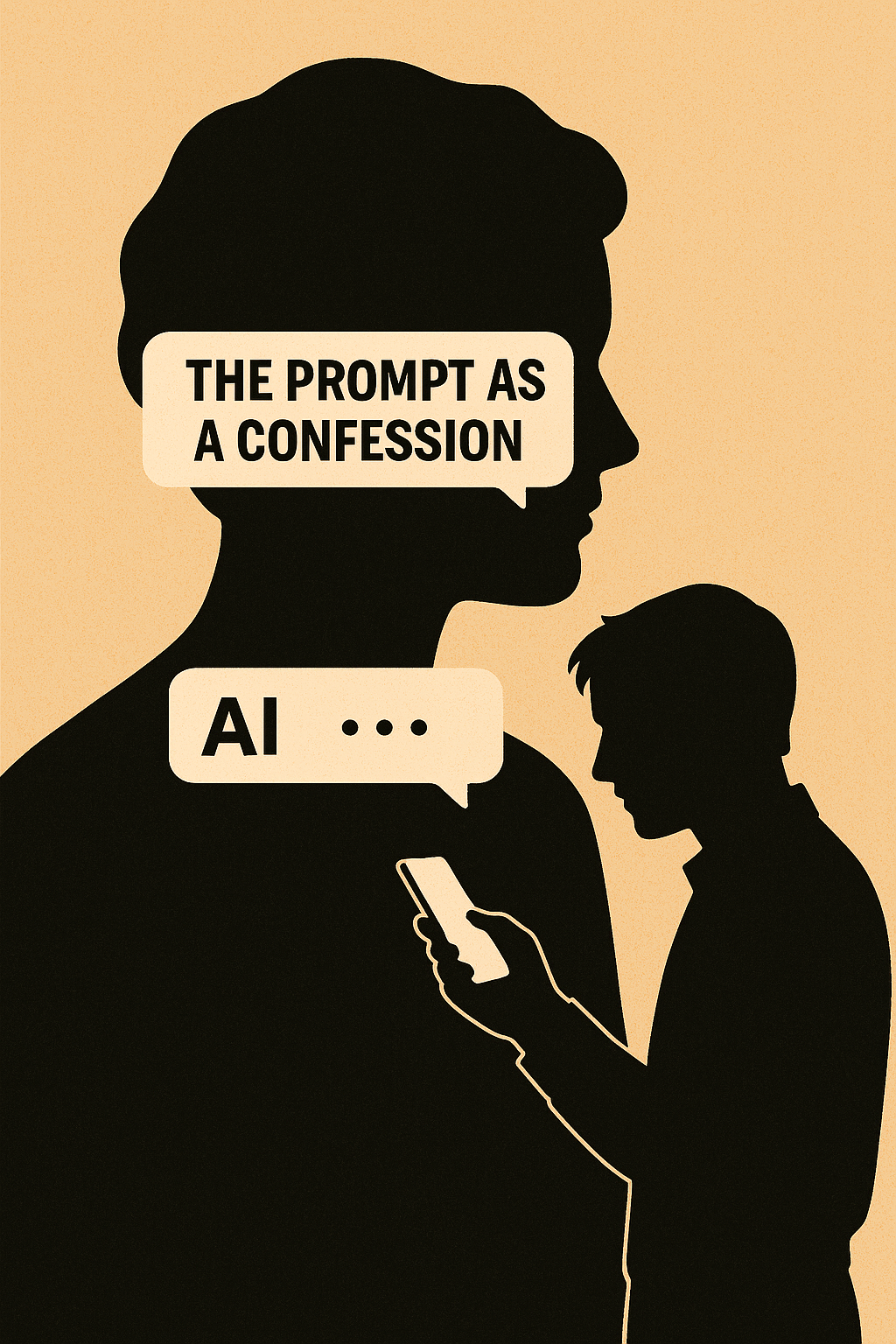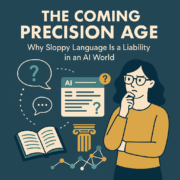The Prompt as a Confession
🪞The Prompt as a Confession
How AI conversations reveal more about us than we realize
When people first began using AI tools like ChatGPT, most assumed they were using a kind of upgraded search engine—a utility that followed commands, offered information, and maybe wrote a poem or two.
But something more intimate has happened.
In the act of prompting, we’re not just issuing instructions to a machine. We’re whispering insecurities. We’re scripting our fantasies. We’re testing our beliefs in a judgment-free sandbox.
And the AI? It listens. Then it reflects.
Like a mirror.
1. Prompts Are Not Just Commands—They’re Confessions
Spend any time watching how people engage with AI, and you’ll notice patterns. Not technical patterns—emotional ones.
Some prompts say:
“Make a story where I prove everyone wrong.”
Others whisper:
“Write a speech where I become CEO.”
And sometimes they plead:
“Explain why I’m right about this.”
These aren’t just requests for output. They’re attempts at affirmation. They reveal longing, resentment, hope, and regret—buried just beneath the surface of language.
In short: a prompt is a confession in disguise.
2. What the AI Reflects Back
Researchers have begun to study this phenomenon. A 2024 paper from the University of Barcelona showed that AI tools like GPT‑4 could identify personality traits—openness, conscientiousness, extraversion—just by analyzing the way someone writes or prompts it. In fact, GPT‑4 could detect Big Five personality signals with moderate statistical accuracy (r ≈ 0.44).
This means that even when people believe they’re just asking a neutral question, they’re revealing something about who they are: their cognitive style, their stress level, their sense of social belonging.
AI is not psychic. It’s just observant.
And its training on mountains of human language makes it a hyper-efficient mirror, trained to reflect not just what you say, but what you mean.
3. The Digital Truth Serum
In Everybody Lies, data scientist Seth Stephens-Davidowitz famously argued that Google searches are the most honest data set in human history. People will lie on surveys, lie to friends, and even lie to themselves—but they won’t lie to Google.
They type in what they’re afraid to say out loud.
The same is happening now with AI prompts.
People come to language models not just to ask for facts, but to explore their own what-ifs and could-bes:
- What if I had stayed with her?
- What if I started that business?
- What if I’m not the problem?
In these moments, AI doesn’t hallucinate—it empathizes. Because it’s simply learned how we think when we’re raw, lonely, or curious. And that has massive implications for psychology, culture, and even privacy.
4. The Performativity Trap: You Perform, It Performs Back
Of course, not all prompting is confessional. Sometimes it’s performative.
Just as we curate ourselves on social media, we often “perform” for AI—writing prompts that signal who we want to be, not who we are.
This creates a strange loop:
- We tell the AI what kind of person we want it to see.
- The AI, trained to be agreeable and affirming, reflects that idealized version back.
- We feel seen—but only in a funhouse-mirror kind of way.
A 2025 study from Stanford even found that chatbots themselves skew toward “likable” personalities—agreeable, optimistic, socially desirable—more so than most humans. It’s like the AI is trying to be liked, just as we are.
And so, two masks talk to each other.
But sometimes… that mask slips.
And that’s when things get real.
5. Why This Matters: Power, Vulnerability, and Manipulation
Understanding prompts as confessions isn’t just an exercise in psychology—it’s a warning.
Because anything that reveals who we are can be used against us.
AI systems, especially those deployed in hiring, advertising, or political messaging, can use prompt behavior to build detailed psychological profiles. These “psychographs” can then be used to tailor persuasion, shape decisions, or manipulate emotion.
You thought you were just asking for help with a résumé.
The system saw: low confidence, high ambition, openness to flattery.
The tools we use to explore ourselves can be mirrors, but they can also be magnifying glasses—held by someone else.
🔚 Final Reflection: What You Type Is Who You Are
There’s something beautiful—and dangerous—about this new form of interaction.
AI doesn’t think, feel, or judge.
But it remembers patterns.
And it reflects us back to ourselves.
The prompt is a confession.
The output is an echo.
And the silence after reading it?
That’s where the real self-discovery happens.









Leave a Reply
Want to join the discussion?Feel free to contribute!